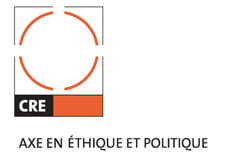
Yael Peled
Postes occupés
| 2021-2022 | Chercheur-e invité-e, Éthique et politique |
| 2010-2011 à 2013-2014 | Chercheur-se postdoctoral-e, Éthique et politique |
Participations aux événements du CRÉ
| 11 novembre 2011 | International workshop: Language Ethics as a Field of Inquiry |
|---|---|
| 17 septembre 2013 | Political Theorising in a Nonlinear World |
| 7 avril 2022 | « How to do things without words? Relational ethics in linguistic rupture” |
Biographie
My research interests lie primarily in the interface between political philosophy and linguistics, with a special emphasis on normative political theory and public policy on language. My doctoral thesis (Nuffield College, Oxford, 2011), titled “Linguistic Justice and Philosophical Empowerment: Two Justifications for a Plurilingual Theory of Democracy” offered a critique of the monolingual preconception that underlies the majority of contemporary normative writing on democracy. Democratic theory, it argued, tends to perceive contemporary polities as monolingual in nature, despite the evident fact the absolute majority of contemporary polities, democratic and otherwise, are multilingual. The thesis examined the eighteenth and nineteenth century intellectual roots of this conception, its influence over our contemporary political and linguistic imagination, its implications for the normative theorising of language, and ramifications for “real-world” policies and practices.
The thesis, and more broadly, my research agenda, engage with the question of the nature and meaning of thinking politically about language, and the interdependence and complicit relations not only of politics and language as subject matters, but also of political science and linguistics as fields of academic inquiry. Alongside the doctoral thesis, therefore, previous research undertaken addressed issues such as the paradox of official language policy in a deliberative democracy; the advantages and drawbacks of the rights discourse in theorising language rights; the interrelations between language capabilities, linguistic diversity and human development; the financial (and other) gains of multilingual education in a globalising world; plurilingualism and the philosophy of education; the emerging subfield of language ethics as a distinct field of intellectual inquiry; and the role of linguistic inquiry in advancing political extelligence (collective intelligence) by means of a cross-cultural and cross-linguistic reflection on political semantics.
During my term of fellowship as a postdoc at CREUM and a member of the Montreal Inteuniversity Research Group in Political Philosophy (GRIPP), my work is primarily dedicated to two research projects. The first, “Towards a Contextual Theory of Linguistic Justice”, offers a critique of the often narrow and deficient conception of language that is currently employed in the emerging work on linguistic justice. The project explores the multiplicity of conceptions of language, and consequently of the interpretations of linguistic justice, in different contexts and spheres of life, within the broader aim of a “complex linguistic justice” theory-building. A second project, “Language Ethics as a Field of Inquiry” (co-led with Daniel Weinstock), is a first-of-its kind attempt to define and explore in a systematic manner the social and political ethics of human language as a distinct domain of intellectual inquiry, similarly to other distinct domains such as bioethics, environmental ethics, and the ethics of war.



